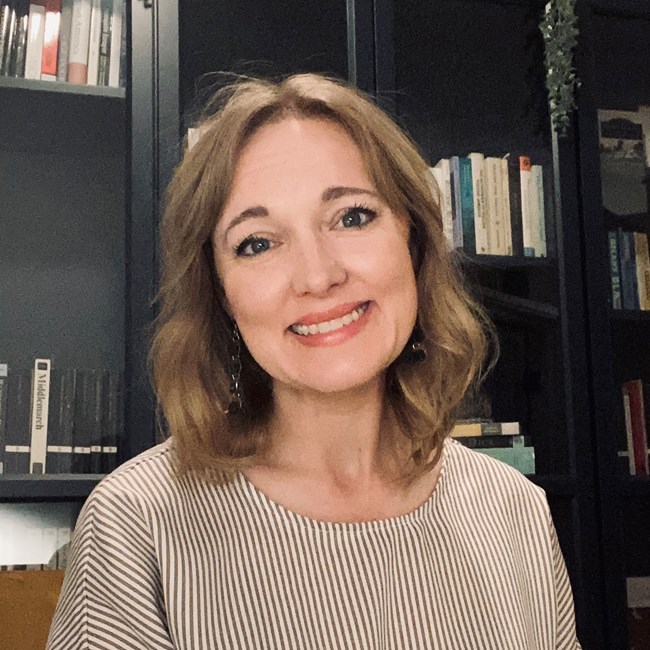Last updated: October 16, 2024
Article
Meet the Mellon Fellows: Dr. Sarah Buchmeier

Dr. Sarah Buchmeier
University of Illinois, Chicago
PhD, English
Host Site: Lowell National Historical Park
Fellowship Title: Workers, Agency, and the Industrial Landscape Fellowship
Project Description: Dr. Buchmeier will research the pre-industrial landscape, and textile industry formation in Massachusetts relative to an emerging 19th century capitalist economy. She will also facilitate community dialogue with assistance of her mentors, with the goal to refine significant themes for a major exhibition highlighting the contributions of enslaved and waged workers to American Industrialization.
Bio:
Dr. Sarah Buchmeier earned her PhD in English from the University of Illinois at Chicago in 2021 and has since worked in the National Park Service as the education and interpretation lead at Pullman National Historical Park. Her research interests include nineteenth-century American literature, religion and secularism, labor history, and theories of public interpretation. She has taught courses on American and British literatures, women and literature, and monuments and historic spaces. In her time at Pullman NHP, she has developed educational resource materials and field trip programs, a youth program focused on environmental justice and co-designed an interpretation training program for park rangers and volunteers. She has published in both academic and public outlets, including Religion & Literature, Legacy: A Journal of American Women Writers, The Chronicle of Higher Education, and JSTOR Daily. She is currently working on a book manuscript that examines the linked emergence of literary realism and secularism in the latter half of the nineteenth century.
Tell us about your research interests!
I'm broadly interested in nineteenth-century American literature and culture, religious history, and labor history. I'm currently working on a book manuscript that explores the relationship between nineteenth-century American literary realism and secularism. What fascinates me about the study of literature is how unique literary texts are as a means of understanding history. It's thrilling to think about how nineteenth-century writers use the literary mode to theorize, make sense of, or imagine new possibilities for the world around them.
How does your research connect to the mission of the National Park Service, which serves both parks and communities?
Much of what I do as a researcher revolves around the construction of narratives and theories of interpretation. I use my knowledge of close reading practices as well as writing & communication strategies to craft the stories inherent in NPS sites and bring communities into critical engagement with those stories.
What are you most excited about as you begin your fellowship?
The staff at Lowell NHP are so creative and knowledgeable, so I'm eager to collaborate with them to bring their ideas for new programs to life. I'm excited about experimenting with different modes of storytelling and interpretation, thinking more about neurodiversity in the development of interpretive programs. I'd also think there are lots of opportunities to breathe new life into NPS interpretation through interactions with literature.
Do you have a favorite story about your personal experience with the NPS, or a park or program you admire?
My favorite NPS site is Pullman National Historical Park, where I lived and worked before starting the fellowship at Lowell. It's the former site of the Pullman company town where they made luxury railcars and where workers staged a strike in 1894 that contributed to the establishment of Labor Day. The Pullman company also employed the African American service workers known as Pullman Porters who greatly influenced the Great Migration and whose union efforts in the 1920s and 1930s set the stage for the Civil Rights Movement. The architecture of the neighborhood is beautiful, and the residents are proud to share their neighborhood's history with visitors. It may be the only NPS site where you might end up in someone's living room or having coffee on their porch! Plus, the park rangers there are everything you want in a ranger: smart, passionate, and welcoming. It's a real gem in an underexplored area of Chicago!
